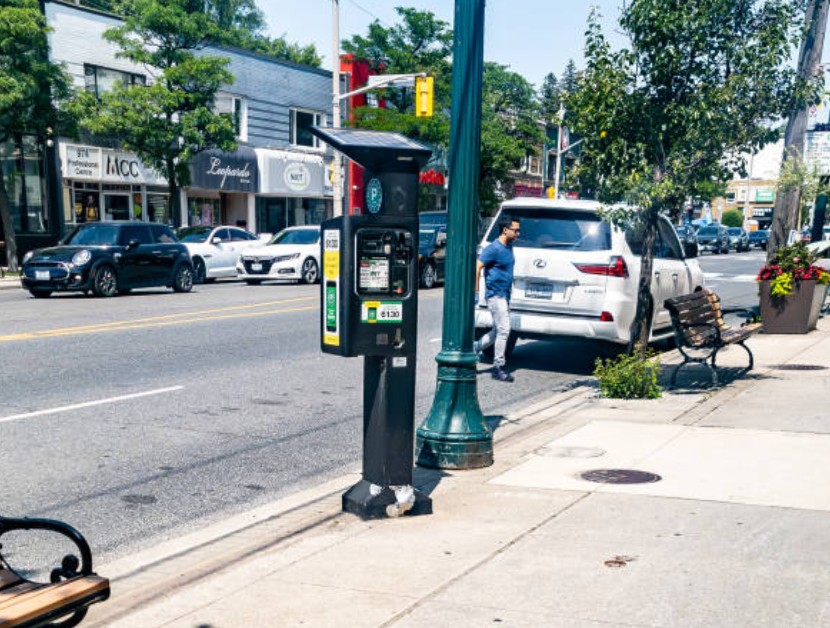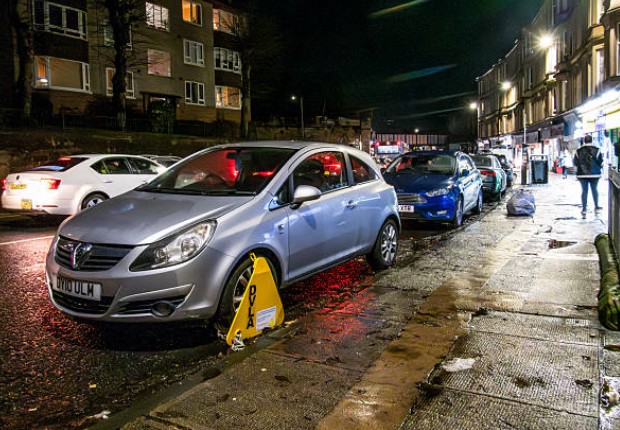In recent years, parking on pavements has become a hotly debated issue across the United Kingdom. As the volume of vehicles on the roads increases, so does the impact on pedestrians, especially those with mobility issues. Traditionally, parking on pavements has been a grey area, with some cities enacting bans while others have failed to implement clear rules. The recent changes to legislation are aimed at providing clarity and improving the safety of pedestrian spaces. This article explains the latest updates and what UK drivers should know about the new law for parking on the pavement.
What Is the New Law for Parking on the Pavement in the UK?
Pavement parking laws are now under review across the UK, with significant changes underway, especially in areas like Scotland. While London has enforced a pavement parking ban for many years, other parts of the country are gradually catching up. The new legislation is designed to better regulate how, where, and when people park their vehicles on pavements to ensure pedestrians can move around freely and safely.
Key Legal Developments
| Region | Status of Pavement Parking Law | Penalty/Fine | Notes |
| Scotland | Implemented a nationwide ban under the Transport (Scotland) Act 2019 | Up to £100 fine | Introduced in major cities like Edinburgh and Glasgow |
| London | Enforced a ban via the Greater London Council (General Powers) Act 1974 | £70 fine, reduced if paid early | Applies across all boroughs |
| Rest of England | Currently under discussion; no national ban yet | Local councils enforce fines where applicable | Varies by area; no nationwide policy |
| Wales | Proposed legislation under review | No set fine established yet | Final decision pending on full legislation |
| Northern Ireland | No specific national legislation yet | Case-by-case enforcement | Still considering potential reforms |
In Scotland, cities like Edinburgh and Glasgow have already seen significant shifts with the imposition of fines and other penalties. These efforts aim to clear sidewalks for pedestrians, especially for those who may have mobility impairments.
Why Is Pavement Parking a Problem in the UK?
The Threat to Pedestrian Safety

One of the primary motivations for the new legislation is to protect pedestrians. When vehicles are parked on pavements, people are forced to walk around them, often onto the road, which presents a clear safety hazard. This situation is especially dangerous for individuals with disabilities, elderly pedestrians, and parents with pushchairs.
Organisations like the Royal National Institute of Blind People (RNIB) and Living Streets have been vocal advocates for eliminating pavement parking. Studies have shown that such practices expose pedestrians to higher risks of accidents and injuries.
The Economic Impact on Local Councils
Pavements are not designed to bear the weight of parked vehicles. Regular pavement parking leads to structural wear and tear, resulting in expensive repairs that local councils must fund. This ultimately puts additional strain on local government budgets, which could be used for other community-focused projects.
A Brief History of Pavement Parking Laws in the UK
The debate around pavement parking dates back several decades, with different regions adopting varying approaches over time. Here is an overview of some key moments in the journey toward clearer pavement parking regulations:
| Year | Event |
| 1974 | London enacts pavement parking ban through the GLC (General Powers) Act |
| 2015 | The UK government holds a national consultation on pavement parking |
| 2019 | Scotland introduces a nationwide ban via the Transport (Scotland) Act |
| 2020 | The UK Government discusses the potential for extending pavement parking bans across England |
| 2024 | Local councils push for national legislation in England |
How Are Pavement Parking Laws Enforced?

Pavement parking laws are enforced by local authorities, which appoint civil enforcement officers to monitor and issue fines. The extent to which these laws are enforced varies, depending on the region and the specific policies adopted by the local council.
Penalties for Non-Compliance
- Scotland: The fine for parking on a pavement can reach £100, with a 50% discount if paid within 14 days.
- London: The fine is set at £70, which can be reduced to £35 if paid within 14 days.
- Other Regions: In regions where the law is still under discussion, fines are less consistent, with some councils using their discretion to issue penalties.
In areas where pavement parking is not banned, the fines are often based on obstruction of pedestrian routes, damage to infrastructure, or other traffic violations.
Are There Any Exceptions to the Law?
While the general rule is that parking on the pavement is prohibited, there are some notable exceptions, although these differ by location:
- Emergency vehicles: Vehicles that are responding to emergencies are allowed to park on pavements temporarily.
- Utility vehicles: Some councils permit utility workers to park on the pavement while conducting essential work.
- Marked spaces: In certain areas, there are designated spots where pavement parking is explicitly allowed through proper signage.
Drivers should always be aware of the regulations in their area and ensure they are not inadvertently violating the rules.
The Effect of Pavement Parking Bans on Local Communities

How Will the Law Improve Pedestrian Mobility?
One of the most important goals of these new laws is to create safer, more accessible streets for everyone. By eliminating pavement parking, authorities aim to ensure that pedestrians, especially those with mobility challenges, have unimpeded access to sidewalks. This is expected to reduce accidents, particularly in busy urban centres where pedestrians and vehicles often share space.
Promoting Better Urban Design
Bans on pavement parking also encourage better urban planning and design. With less reliance on pavement parking, local councils can allocate more space for pedestrian-only zones, parks, and cycle lanes. This improves the overall quality of life for residents and visitors, contributing to cleaner and safer neighbourhoods.
What Does This Mean for Drivers?
As the laws around pavement parking evolve, drivers must stay informed to avoid fines and penalties. Compliance with these new rules is essential for avoiding unnecessary expenses and contributing to safer public spaces.
Tips for Drivers
- Be aware of local regulations: Always check the parking rules before parking your car. Look for road signs and consult your local council’s website for updates.
- Keep pavements clear: If parking on the pavement is prohibited in your area, make sure your vehicle is parked entirely off the sidewalk.
- Consider alternative parking: In areas where pavement parking is a problem, explore off-road parking options or look for public car parks.
By following these guidelines, drivers can ensure they are abiding by the law and helping make UK streets safer for pedestrians.
What Are the Consequences of Continued Non-Compliance?
Financial Penalties and Vehicle Towing
The penalties for parking on the pavement are not to be taken lightly. Aside from fines, persistent offenders may have their vehicles clamped or towed. Councils have the power to enforce these penalties more aggressively, particularly in high-traffic areas where pedestrian safety is a major concern.
For individuals who repeatedly park illegally, these penalties can quickly accumulate, leading to significant financial strain and even legal action in some cases.
Impact on the Local Community
In addition to the personal penalties, illegal pavement parking has a wider impact on local communities. It disrupts pedestrian flow, creates dangerous situations, and reduces the overall quality of public spaces. Local councils have increased efforts to combat this issue, ensuring that drivers adhere to regulations.
Conclusion: A Move Toward Safer Streets for All
The new regulations around parking on pavements represent a vital step toward improving pedestrian safety and urban planning in the UK. While the process of implementing nationwide laws is still ongoing, the changes that have already taken place are encouraging.
As a driver, staying informed about your local rules and considering the impact of your parking decisions on others will help ensure a safer environment for everyone. By following the new laws, UK residents can contribute to creating more accessible, pedestrian-friendly streets that benefit the entire community.
Frequently Asked Questions (FAQs)
Is pavement parking banned everywhere in the UK?
No, not everywhere. While pavement parking is banned in London and enforced in Scotland, the rest of the UK is still in the process of developing and enforcing similar laws.
Can I park on the pavement outside my house if others do it?
No, unless it’s explicitly allowed by your local council. Even if others do it, it’s still illegal if it’s not authorized by proper signage or regulations.
How can I find out if pavement parking is allowed in my area?
Check with your local council’s website for up-to-date information, or look for signs indicating where pavement parking is allowed.
Will the fines for pavement parking increase?
The fine amounts vary depending on the region. Some councils may raise penalties if pavement parking continues to be a persistent problem.






